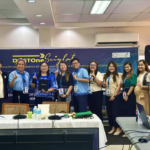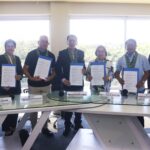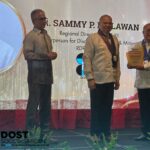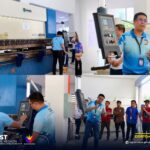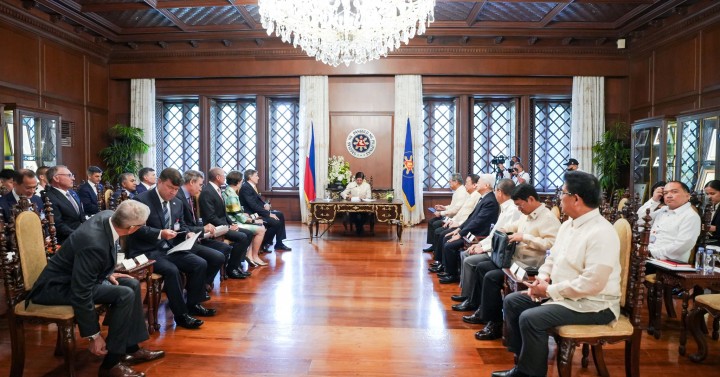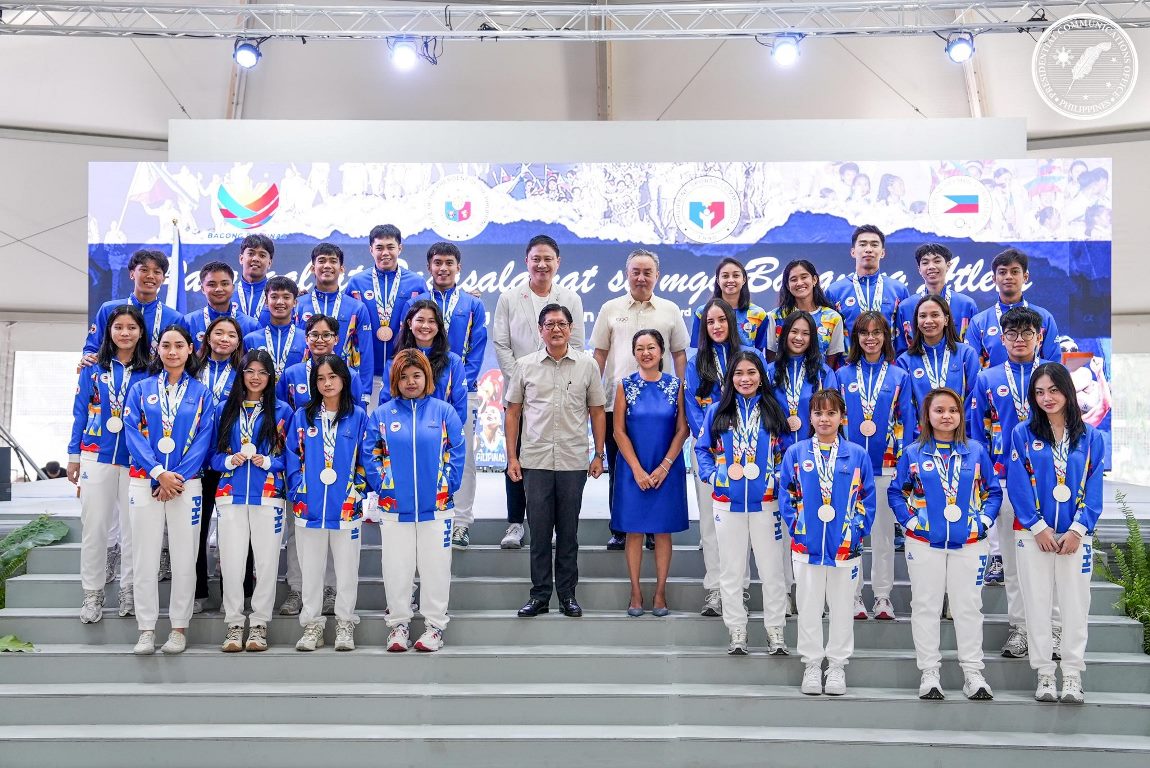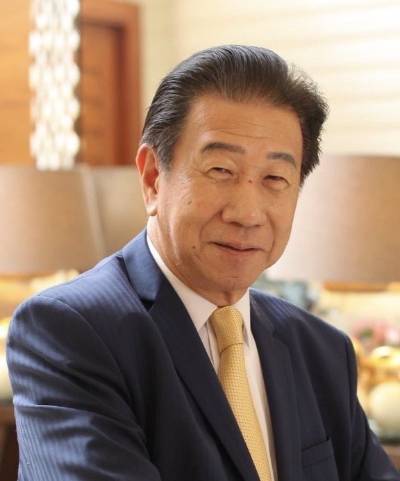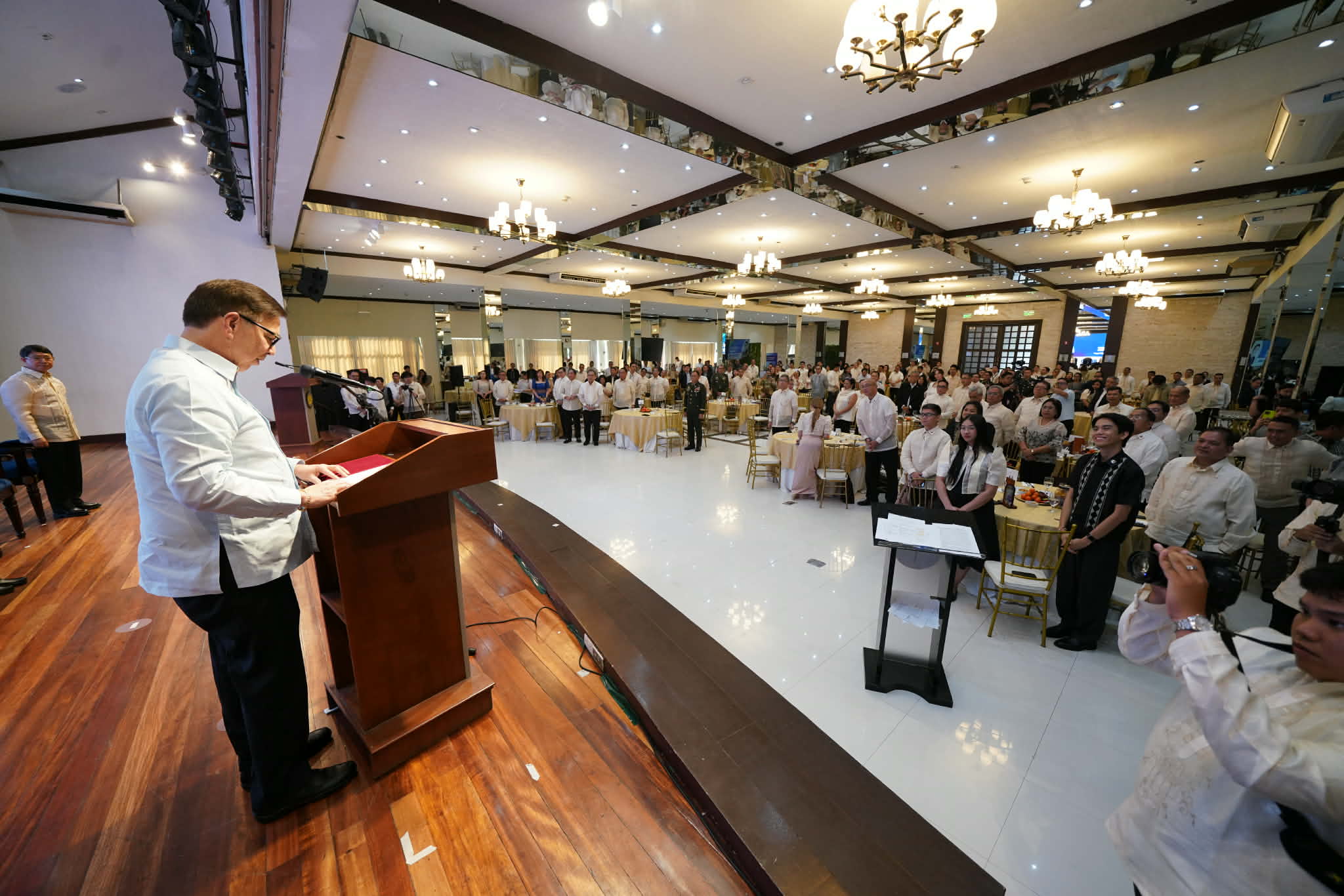BUSINESS OPPORTUNITIES. Members of the Business Executives for National Security meet with President Ferdinand R. Marcos Jr. at the Malacañan Palace, Manila on Monday (July 10, 2023). BENS reaffirmed its commitment to boost cooperation and investment of American firms in the Philippines. (Photo courtesy of PCO)
To help further enhance Philippine-United States engagements, the Business Executives for National Security (BENS) have reaffirmed on Monday their commitment to boost US cooperation and investment in the Philippines particularly in health, digital infrastructure and energy programs.
In a meeting Monday in Malacanang, BENS asked President Marcos about his thoughts on business opportunities in the healthcare system in the Philippines, especially in the nursing industry and in digital infrastructure and energy.
In response, President Marcos said they are now “groundbreaking a big multi-specialty hospital just outside Manila and will open more of them as annexes hospitals,” including more in far-flung areas.
“I’ve always been a great believer of bringing healthcare down to the grassroots level. Right now, there is a tendency for us to only go to the hospital when it is absolutely necessary … So healthcare has become an important part of this administration efforts,” he added.
The President noted that the Philippines has became “a victim of our own success” especially during the pandemic where a lot of world leaders have asked for the country’s help to deploy more Filipino nurses and medical practitioners abroad.
“So we are trying to find schemes so as to alleviate that problem. One of the things our Department of Health has come up with is that we are coming to an arrangement with countries who will accept Filipino healthcare workers and to at the same time train the equivalent number of healthcare workers that will stay in the Philippines,” he added.
On energy, Marcos told the BENS members that the price, reliability and supply of energy is one of the problems being brought up by some foreign investors in the Philippines, and the problem on the ease of doing business.
He, however, stressed that it is something the government is working on. “The ease of doing business is something we can do immediately about because putting up power plants no matter what kind of power plants, there are six, seven years, lead time. So maybe with the new technologies maybe we can do better,” he said.
In terms of the digital infrastructure, Marcos said the government has amended some laws to make investment in the Philippines more attractive, especially on the digitalization of the country’s economy not only in the government but also in the private sector.
The Chief Executive also talked about the government’s efforts to give importance to micro, small and medium enterprises (MSMEs). “We are trying to bring them into the system of digital marketing. So we put up an app for small business to be able to use,” he said, referring to the “Paleng-QR Ph Plus Initiative” that aims to prop up economic activities in the Philippines.
“We have encouraged private NGOs (non-governmental organizations) which have had an interest in promoting start-ups. We are trying to create an environment that will be friendly to start-ups because we know that start-ups have higher rate of failure than other traditional businesses. So we need to be able to adjust to that new way of doing things,” he added.
The President took pride on the country’s booming business process outsourcing (BPO) industry which continued to operate even during the trying times of the Covid-19 pandemic through the work-from-home scheme.
“It derives from the very clear understanding that solution to many of the challenges we face today lie in new technologies. And that’s why the retraining and re-skilling of our people have become important because we have to get them into that line of work so we have enough people for them,” he said.
“Actually, the workforce is quite full when it comes to tech. But again, we need to catch up in terms of training, in getting involved in the new technologies we are seeing for many, many reasons — digitalization, climate change, cybersecurity,” he added.
Members of the BENS expressed their gratitude to the President as they recognized his excellent leadership in restoring the special and important alliance between the Philippines and the US governments.
Among the BENS members who met with President Marcos were GardaWorld Federal Services president Pete Dordal; WinFertility president/chief executive officer (CEO) Roger Shedlin; Cavalry Asset Management managing partner/chief investment officer John Hurley; Arnold & Porter LLP senior partner Ramon Marks; and Pescador Resources president David McDonald.
SPG International president/CEO Steve Darnell; Crisis Response Company LLC president/CEO Robert Akin; Shield Capital co-founder/managing partner Raj Shah; BENS president/CEO Gen. Joseph Votel (ret.); and BENS vice president of programs Patrick Sweeney were also present during the meeting.
US Ambassador to the Philippines MaryKay Carlson, Political Counselor Brett Blackshaw, Defense Attache Col. Edward Evans, First Secretary David Sequeira, and Plans & Policy chief of the Joint US Military Assistance Group Jonathan Wachtel likewise joined the meeting.
BENS is a 10-member business group in the US founded in 1982. Its executives are currently in the Philippines until Thursday to engage with Philippine leaders at the nexus of business and national security and discuss potential areas for investment and cooperation in the country. (With PND)



